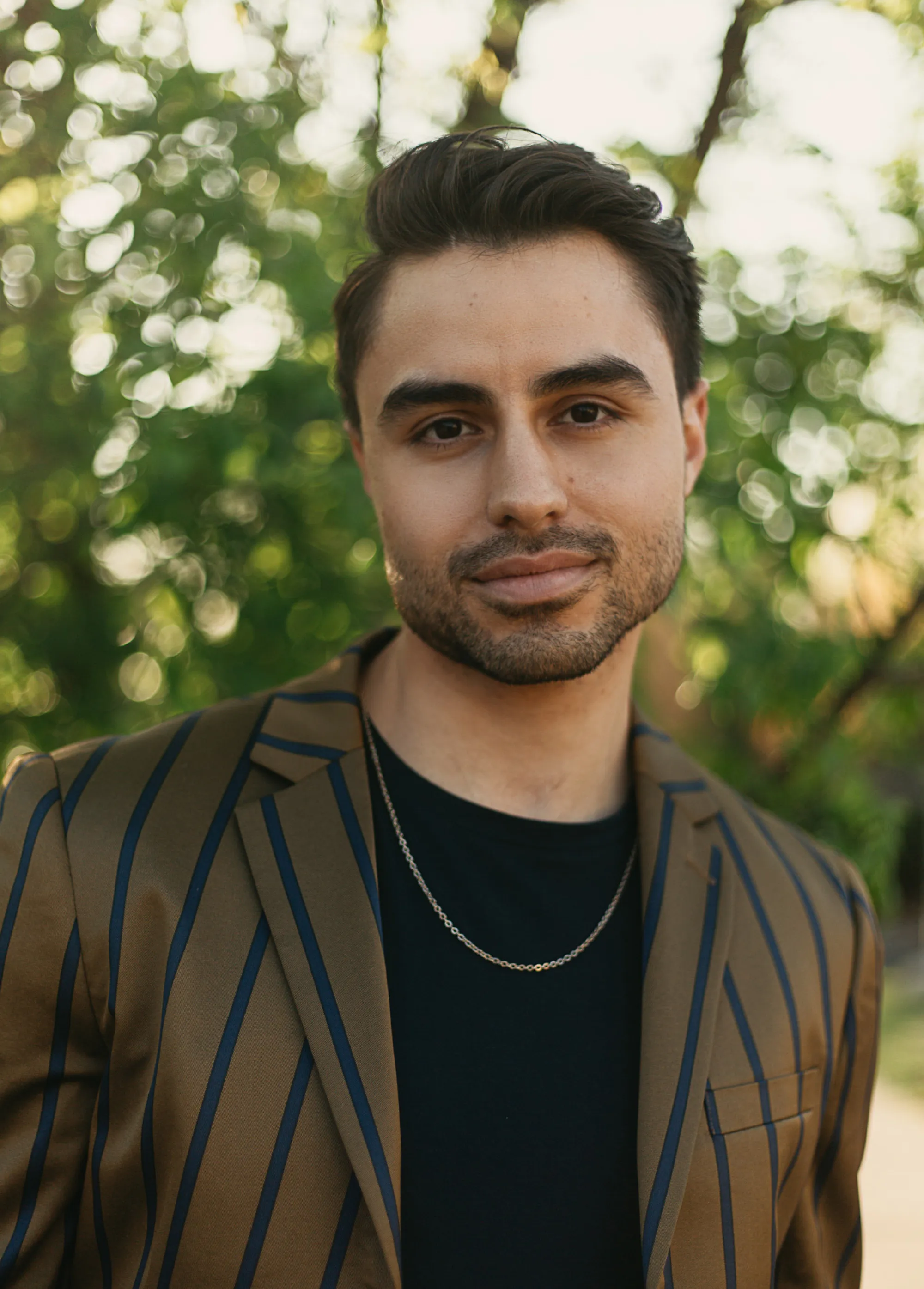April 5, 2021

Photo by: Pranil Zaman
By Mariane Gutierrez
Jonathan Villela, a graduate student in conducting in the Butler School of Music, was recently named a Henry Luce Scholar, a fellowship program created by the Henry Luce Foundation in 1974 to enhance the understanding of Asia among potential leaders in American society. The program provides stipends, language training and individualized professional placement in Asia for 15-18 Luce Scholars each year and welcomes applications from college seniors, graduate students, and young professionals in a variety of fields who have had limited exposure to Asia.
Villela has worked alongside the Dallas Winds and Cedar Park Winds. Villela has also served as Assistant Director of Bands at Four Points Middle School in Leander, Texas, as drum major of the OSU Cowboy Marching Band, and has been previously named a Velma Forbes Scholar and Music Teachers National Association Chamber Music Finalist. We recently caught up with Villela about his fellowship.
Why is being named a Henry Luce Scholar a meaningful accomplishment for you?
Being named a Henry Luce Scholar is a great honor! The national fellowship represents a dynamic opportunity afforded to but 15-18 students each year. The Henry Luce Scholars Program is an incredibly supportive and tailored fellowship. I feel like I’m permitted to curate an experience that fits my area of focus. My immense gratitude to my many mentors who aided in the application process, and to the Luce and Asia Foundations for their acceptance, interest and professionalism.
How has your time in the Butler School of Music prepared you for opportunities to receive a fellowship like this one?
I sense a distinguishing element that characterizes the Butler School of Music is that of “go get it-ness.” Students and faculty alike represent leaders of their fields and of their generations—it is an environment receptive to creative thinking, boundary-pushing and norm-challenging. Admittedly, I had my own trepidations about ever applying to the highly competitive Luce Fellowship, and I must thank my professors at the Butler School of Music for their encouragement and support of this pursuit.
Can you tell us more about what you will be doing with your fellowship?
Yes! My specialty and area of focus is Wind Band Conducting. The Japanese wind band culture has maintained international attention for their amazing abilities and performance traditions. Western culture has worked to emulate Japanese wind pedagogy and rehearsal strategies for decades. Through the Luce Fellowship, I will work and learn from this culture firsthand. COVID-19 has muddied a bit of the planning process, but the Luce Fellowship, Asia Foundation and I feel optimistic about the coming year. We are exploring a potential work placement at the Senzoku Gakuen College of Music, as well as other conducting and teaching opportunities throughout the country.
I understand you studied saxophone, chamber music and pedagogy. Can you tell us about when you fell in love with music and teaching?
I credit much of my drive and creative outlook to my study of saxophone. At Oklahoma State University, I studied with Dr. Jeffrey Loeffert, a premiere artist, scholar and saxophonist. Although it was never my intention to create a career as a saxophonist, many of the concepts learned from Dr. Loeffert transferred into my career as a conductor and educator. Chamber music taught me how to listen—how to communicate as a performer. The craft instilled lessons of dependability, collaboration, trust and synergetic expression; profound lessons that continuously influence the ways in which I work with ensembles. Ultimately, I fell in love with music through the environment curated by Dr. Loeffert. He instilled an expectation to understand music beyond its sonic existence, and beyond the mediums of saxophone and wind music. During my undergraduate studies, I learned how music functions as a pillar of society and human expression. I discovered the art form’s ability to conjure true change in patterns of thought, and witnessed its potential for societal betterment. Retrospectively, I arrived at Oklahoma State with a love of band. I left with a love of music.
What is your favorite part about being involved in the arts?
People are at the center of what I do. The most rewarding aspect of my craft is creating art, beauty and music, with other people, for other people. Some of the greatest memories I’ve created thus far include many conversations with those I’ve conducted or taught—hearing their experiences and thoughts on how music changed them; helped them or permitted them to connect with themselves at a deeper, more authentic level. An additional favorite aspect of what I do is that I will never stop learning or bettering myself. Every subsequent year will be met with modern innovations, new repertoire, new artistic influences and an ever-developing collection of life experiences. A great conductor is able to juggle analyticity and vulnerability; one who is both a strong leader and humble follower. While such a notion is bleak to others, I find solace in knowing that art will create a life of study, growth and progression. I look forward to learning an immense amount abroad, and forever instilling those lessons into my teaching for years to come.
Is there any advice you would give to a new student in the Butler School of Music?
I wish to share what is perhaps the best advice given to me. This is something that I can’t take credit for, but am happy to pass to others:
“Your experience is what you make of it.”
Whether you’re beginning your time at the University of Texas, or embarking on a yearlong fellowship, you are in control of your experiences. Allow curiosity to lead your growth rather than the academic outline of a degree sheet. Create opportunity for yourself. If it doesn’t exist--make it. Embrace the path less taken. Work on yourself not out of selfishness, but for the betterment of those around you.

